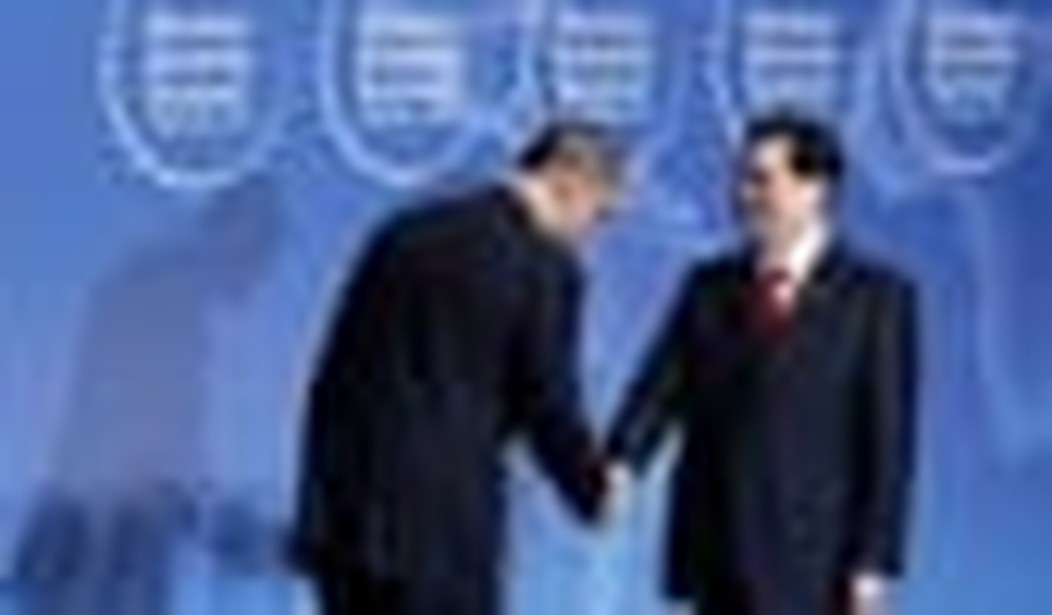Vice President Xi Jinping, slated to become China’s next supremo, arrives at the White House tomorrow. We have been told that the Obama administration will not “sacrifice the important issues for the sake of having a comfortable visit,” yet there is a sense of pessimism in Washington about America’s ability to persuade China to move in the right direction. It seems that everyone here believes that Beijing owns the century and controls our destiny.
The truth, however, is that we have the ability to get China to do what we want. Why? Because at the moment the Chinese economy is faltering — most indicators are pointing to low single-digit growth and “hot money” is gushing out of the country — and Washington holds the key to rescuing it.
China at the moment is in trouble because, among other things, export growth, once the engine of its economic “miracle,” has been on a long downward trend. Last month, exports fell 0.5% on a year-to-year basis and 14.2% month-on-month, a performance well below consensus estimates. That’s a problem for Beijing because it is dependent on sales abroad to keep Chinese factories humming and workers employed, and the American market is extraordinarily important to them.
The general narrative is that, when the global downturn hit in 2008, Chinese exporters started selling more to other markets and became less reliant on tapped-out American consumers. The facts tell the opposite story, however. In 2008, 90.1% of China’s overall trade surplus related to sales to the United States. That already staggering figure increased to 115.7% in 2009, and 149.2% in 2010.
And last year? Last year, the figure was a simply unbelievable 190.5%. In 2011, China’s trade surplus against the United States hit $295.5 billion, easily surpassing the 2010 record of $273.1 billion.
It would seem, on first glance, that China’s dependence on the American market cannot continue this sharp upward trend. Nonetheless, we have to remember that the reason for increasing Chinese reliance on us was that factory orders from the 27-nation European Union, China’s largest export market, collapsed in the second half of the year.
As a result, Chinese factory owners began to flee because they could not pay their debts, some of them even committed suicide, and worker protests flared. This year, it appears, the drought of European orders to China will last the entire year. It’s possible, therefore, that sales to the U.S. will account for an even larger share of China’s total.
All this means that President Obama has enormous leverage over Xi Jinping’s Communist Party, whose legitimacy depends on the continual delivery of prosperity. So despite what everyone here thinks, we can get China to stop its cyber attacks on us, end its harassment of American vessels on international waters, cease its threats over a dozen issues. We can even pressure the Chinese to withdraw their support for the Iranian regime and scale back help to North Korea.
Xi has adopted an unusually conciliatory tone to America before his visit, and his colleagues in Beijing have toned down their verbal assaults on us in recent weeks. They know that, in fact, they are playing a weak hand. And they know the meaning of “190.5%.”
We have the leverage over China. They only issue is whether we have the political will to use it.









Join the conversation as a VIP Member